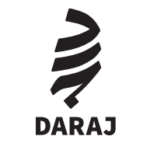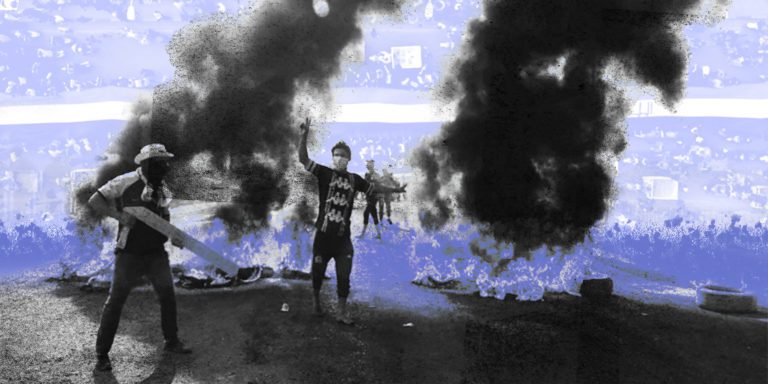The first parliamentary session of the Iraqi Council of Representatives on January 9 offered some great scenes of, highly symbolic, political theater. Most prominently visible were arguably the deputies of the Sadrist Movement, who entered parliament wearing black shrouds, chanting slogans glorifying their leader Muqtada al-Sadr.
The act was a reference to their willingness to die, as it brought us back the “rite” performed by Muqtada’s late father, Ayatollah Mohamed Sadeq al-Sadr, who in 1999, in defiance of Saddam Hussein’s orders not to, wore a death shroud when leading the Friday prayers and was assassinated shortly after.
The Iraqi parliament’s independent blocs, including the Extension Movement and the Kurdish New Generation Movement, had their deputies gather at Baghdad’s Tahrir Square, which was the epicenter of the October protests that gave birth to both factions.
The deputies then took a tuk-tuk to reach the parliament. The three-wheeled motorcycle was the the most prominent means of transport during the protests, thus becoming an important symbol of the popular uprising.
Most prominently visible were the deputies of the Sadrist Movement, who entered parliament wearing black shrouds, chanting slogans glorifying their leader Muqtada al-Sadr.
Female Kurdish deputies arrived in richly colored traditional clothes, while a representative from Al-Muthanna Governorate in southern Iraq wore a tattered patched-up dress to show off his working class credentials.
The first parliamentary session was chaired by Mahmoud al-Mashhadani, the council’s former head and, at 73, currently its oldest member. Chaos kicked in after one of the council’s independent members criticized Mohamed al-Halbousi.
This allowed the pro-Iranian Coordination Framework alliance to try to block Halbousi’s re-election as parliamentary speaker. In the tumult that followed their candidate, Al-Mashhadani was hit on the head. He lost consciousness and was taken to the hospital, where he was visited by Coordination Framework leaders Nuri al-Maliki, Qais Khazali and Faleh al-Fayyad
The parliament’s first session could only be completed with Khaled al-Daraji as speaker, who started the voting. Halbousi defeated former speaker Mashhadani by winning 200 of the parliament’s 329 votes. Hakim al-Zamili of the Sadrist bloc was elected first deputy and Kurdish Shakhwan Abdullah second deputy.
Read Also:
According to Mishaan al-Jubouri, an MP for the Alliance of Resolve, the chaos that took place in parliament was premeditated and prepared in advance.
He also said that Mashhadani did not manage things professionally, as he tried to postpone the election of a new speaker in order to give more time to the negotiations between the Azm Alliance and the Sadrist Movement.
According to Najm Al-Qassab, head of the Al-Mawred Group for Studies and Media, Article 50 of the Iraqi constitution stipulates that the speaker’s job is to open the first parliamentary session, take the constitutional oath and start the election process.
His job is not to determine the largest bloc. That is the responsibility of the incoming, newly elected president. Therefore, according to Qassab, what happened in the first parliamentary session was aimed at creating chaos in order to reshuffle the cards, restart negotiations and not elect Halbousi.
The logic of force was remarkably present in the first parliamentary session, according to writer Ahmed Al-Haddad. The butting and shoving was a clear attempt by some parties to subjugate others: a transfer of the logic of the street to the country’s state institutions.
Political science professor Iyad al-Anbar, however, still saw some positive aspects, as the first session did end in selecting a new speaker and two deputies. Iraq’s first sessions in the past were never able to do so.
As for the parades in shrouds and tuk-tuk arrivals, Anbar did not see any benefit in them, unless they are accompanied by real legislative action that benefits voters.
Researcher Ziad Al-Arar expects that the parliament’s 5th session will witness fundamental changes in terms of agreements and alliances, and will reflect the mood changes among Iraqi voters. However, forming a government will be a challenge in a whole other dimension…
Since this article was written two explosions occurred that targeted the headquarters of the “Progress” movement and the other of the “Azm” movement in the capital, Baghdad.
Read Also:







